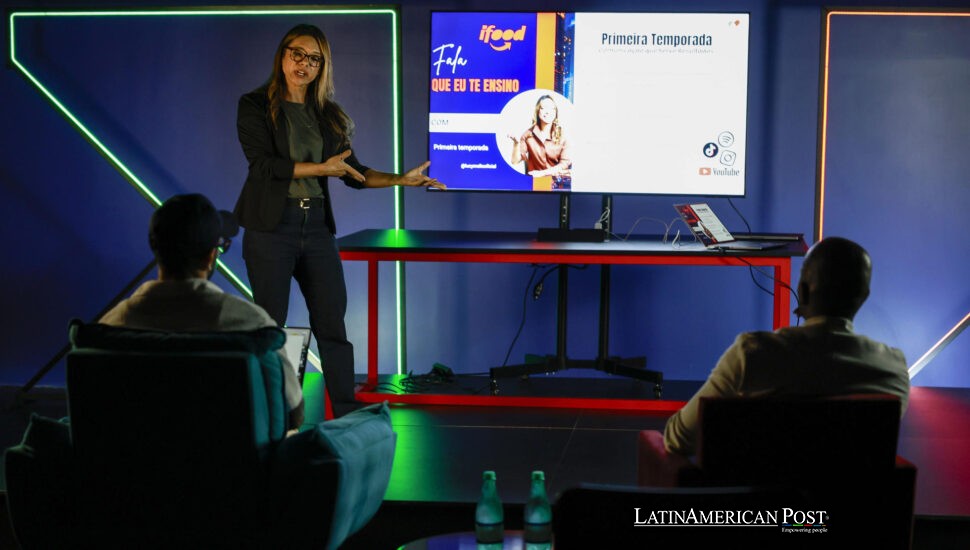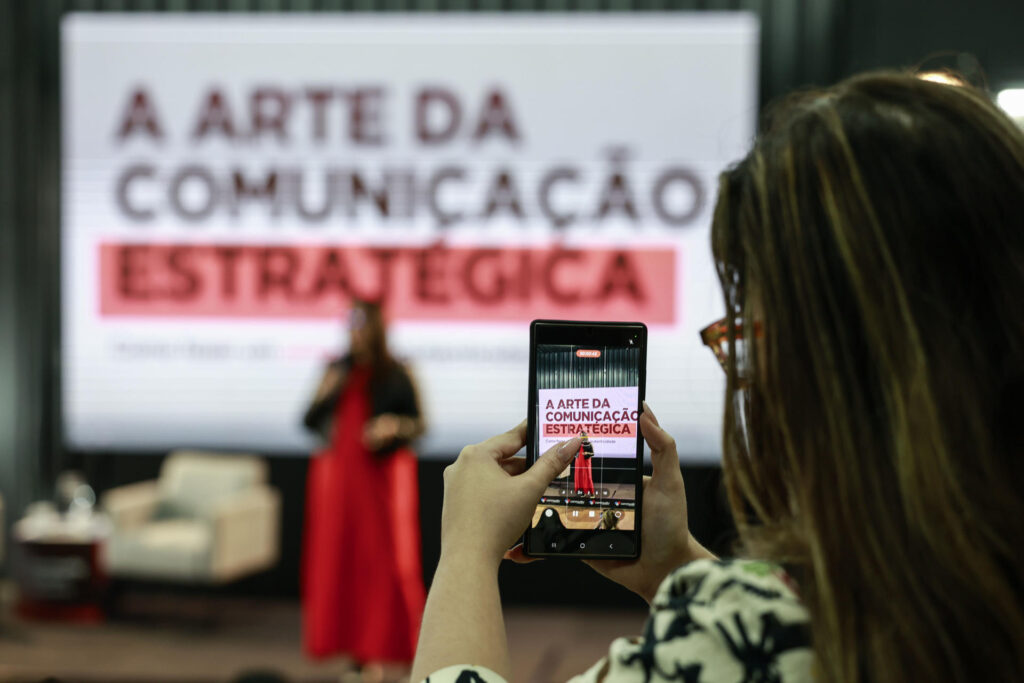Brazil Builds a School Where Influencers Learn Business Before Fame

São Paulo hums with noise—traffic, construction, ambition—but somewhere near the city’s bustling wholesale market, a black, windowless warehouse absorbs the clamor. Inside, a new industry is learning to talk to the world. Fourteen thousand square meters of flashing LED corridors, pastel backdrops, and ring lights form the Community Creators Academy, Brazil’s first business-minded influencer school. Here, the nation that gave the world Pelé, Carnival, and the telenovela is training its next export: the content creator as entrepreneur.
A Warehouse Built for the Algorithm
From the street, the building looks like an oversized speaker box: step inside, and the air hums with neon. Podcast studios are glowing in blue, gaming bays lined with LED strips, and even an artificial beach where waves are digital and the light is always golden. “Everything here is centered on generating content,” said Fabio Duarte, the academy’s founder and CEO, during a walk-through with EFE. “Today, knowing how to create content is like English—it’s a language you need to survive.”
Duarte, 45, has lived half his life in advertising. His agency, Agência California, has worked with giants such as YouTube and Disney, but he wanted to create a space that gave structure to Brazil’s chaotic, often improvisational digital culture. Opened in August, the academy already counts roughly 400 students who passed a selective admissions process. “We don’t teach people how to ‘go viral,'” Duarte told EFE. “We teach them how to build careers. Understanding the audience is more important than having followers.”
Golf carts ferry staff through the maze of sets. Students ride scooters between filming rooms, stopping to record TikToks in front of bubble-gum-pink bathroom mirrors framed by portraits of Marilyn Monroe, Tina Turner, and Carmen Miranda. The building feels half film studio, half campus, and all aspiration—a $ 10 million bet that Brazil’s gift for performance can be turned into a lasting profession.
From Tuition to Partnerships, A Real Business Plan
The school runs like a private university, only with more camera tripods. Its courses range from online certificates that cost around 3,000 reais (about $550) to six-month mentorships priced at 35,000 reais ($6,500). Scholarships are available, but the competition is fierce. Duarte partnered with Ânima Educação, the company behind several major private universities, and assembled a corporate roster that reads like a modern curriculum: Samsung, Universal Music, YouTube, Instagram, Natura, and Uber are all involved.
For Duarte, the point is to professionalize an industry that has matured faster than its players. Brazil boasts one of the most engaged social media populations in the world—three out of four young people say they aspire to become influencers. “Four years ago, we realized that talent wasn’t the problem,” Duarte said. “Structure was.”
Inside the academy, the structure resembles studios, editing labs, and soundproofed spaces that can mimic nearly every online genre, including fitness tutorials, comedy sketches, cooking shows, and political talk. However, it also resembles a classroom, where students learn storytelling, analytics, copyright law, and ethics. The motto is simple: luck fades, but professionalism endures.
Students Rewriting Their Futures on Camera
On a pastel set bathed in fluorescent light, Thaina Cazetta, 28, adjusts her tripod. She is filming an outfit video for her 2,000 followers. “I was a nail designer,” she told EFE, “but now I’m one hundred percent focused on being a content creator.”
Cazetta won her place through a scholarship offered by Digital Favela, an agency that promotes influencers from low-income neighborhoods. She commutes daily from Cidade Tiradentes, one of São Paulo’s poorest districts. “Sometimes I bang my head because there are so many technical terms and everything is new,” she said, laughing. “But I’m using it to evolve.”
A few studios away, Yaska Cocovick, 32, sits surrounded by notebooks. The daughter of Russian immigrants, she has been creating content for eight years—mostly beauty tutorials—but now focuses on family and wellness. “It’s a change in mentality,” she told EFE. “I’m moving from selling ads to owning my brand.”
With 110,000 followers on Instagram and monthly earnings of around $4,000, Cocovick views herself as part of the first generation of Brazilian influencers who aim to outlast a hashtag. “Respect, professional ethics, and authenticity,” she said, “that’s what success looks like.”
These students are not chasing overnight fame; they are chasing a livelihood. They learn lighting setups in the morning and marketing metrics in the afternoon, then edit their own clips at night. For some, it’s their first formal education in years. For others, their first job feels like their first real job.

A new curriculum for a new cultural export
For decades, Brazil’s global identity was built on soap operas, football, and music. The academy bets that the next chapter of that story will be written in pixels. Courses teach students to understand platforms as ecosystems—each with its rhythms, audiences, and economies. One class dissects the logic of YouTube thumbnails; another explains taxes for freelancers.
But beyond the buzzwords, the school carries a cultural argument: that being a creator is real work deserving of professional respect. “This is a career like any other,” Duarte said to EFE. “It requires method, knowledge, and consistency.”
The fluorescent maze also mirrors Brazil’s contradictions. Tuition remains a barrier, even with scholarships. For many young creators, the industry’s promise still collides with economic inequality. Yet the academy tries to bridge that gap through partnerships with NGOs and talent scouts who seek students from the country’s favelas and interior towns.
The model is catching attention abroad. Duarte has received calls from Mexico, Spain, and the United States regarding the expansion of the concept. The hope is to make São Paulo a global hub for the “creator economy”—an industry projected to reach $500 billion worldwide by 2030.
In the afternoon, as light filters through the skylights of the artificial beach, Cazetta wraps her shoot. She reviews the take, nods, and smiles. “It’s strange,” she admits, “but I feel like this is my office now.”
Behind her, a crew dismantles a set while another group rehearses a podcast intro. The sound of ambition echoes off the black walls.
Also Read: Cybercriminals Now Speak Fluent Spanish—And That’s Why Their Scams Work
For all its ring lights and slogans, the Community Creators Academy is more than a factory for influencers. It is a reflection of Brazil itself—restless, inventive, and determined to turn improvisation into industry. “Content is like English,” Duarte repeats, his voice fading down a neon hallway. “If you learn to speak it well, it can take you anywhere.”





